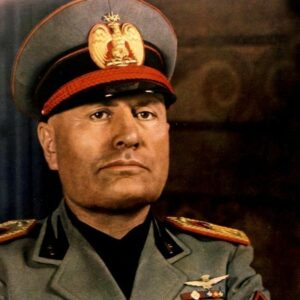FLOWERS: Shadow of Financier George Soros Looms Over Philadelphia

I just spent two weeks in Italy. Since travel writing is not my forte, I’ll leave it to Rick Steves and Stanley Tucci to cover the culture and history of my ancestral land. And while I had the serendipitous opportunity to observe what happens when a prime minister resigns, you’d be better off reading Politico for the ramifications of the upcoming Italian elections.
But there is something I feel comfortable discussing in this forum as a woman, a lawyer, an American citizen, and someone who has a deep appreciation for justice. It’s the idea that you can live in a large metropolitan city filled with people of different nationalities, ethnicities, and social classes and feel safe.
I am not talking about my hometown Philadelphia. There, you are as likely to see a bullet flying in front of your face as you are to glimpse a butterfly drifting from flower to flower. There is no way of hiding the obvious: The City of Brotherly Love is a cesspool of violence, administrative incompetence, official negligence, a betrayal of civic trust, and a dereliction of duty to those who are trapped within its geographical prison bars. I have spent 60 years in this place, give or take the periods I escaped to Europe, and it has never been as dangerous, as hostile, as bellicose, or as close to the “Killing Fields” of Cambodia as it is today. Enough sugar coating: Philadelphia is dying.
I’ve tried to convince myself that this isn’t the case and that there are still vestiges of the city I have loved for well over a half-century. I walk past the historical markers of my childhood and focus on the profound significance they have for our country, trying desperately to ignore the homeless person defecating in the street near the Liberty Bell, or the strung-out addict gazing at me through his oblivion from the corner of Betsey Ross’ house. And when I take public transportation, which I do rarely these days, I try and huddle in a corner so the feral, rabid kids who ride the rails with their face-covering hoodies don’t assault me, as one did last October.
Being in Italy was a revelation. I saw a city bigger than Philadelphia shine with the glow of three millennia of history, of art, of culture. And I immersed myself in an atmosphere that–while urban–did not make me tremble with the fear that some criminal was lurking in a dark, stone-paved alleyway.
I walked alone, at midnight, along the Tiber and felt no fear. I approached strangers to seek direction, free from the anxiety that grips me in my hometown when I sprint down Broad Street, or Samson, or Market, looking over my shoulder.
So there was particular irony in the fact that one of the first things that I read upon returning from Rome this week was a piece in The Wall Street Journal from George Soros explaining why he will continue to use his money to destroy my city and others. Of course, that’s not the way he put it. His exact words were, “I have supported the election (and more recently the re-election) of prosecutors who support reform. I have done it transparently, and I have no intention of stopping.”
Those “prosecutors who support reform” are people like the recently recalled Chesa Boudin in San Francisco. They are like Alvin Bragg, a shameless provocateur in New York. They are like George Gascon, the arrogant prosecutor in LA. And they are, most importantly for those of us in the Delaware Valley, like Larry Krasner, who has presided over the greatest spike in homicide and violent crime in Philadelphia in over three decades.
I will not quote each of Soros’ lies in this column because his methods and machinations are well known to those of us suffering from the heavy effect of his wealth. He has purchased prosecutors who have brought mayhem and death to cities across the country and has tried to package it as “reform.”
What I will say is that his blatant, unapologetic support for people like Krasner who never met a criminal he didn’t like and who refuses to prosecute gun crimes while blaming Republicans for respecting the Second Amendment is proof positive that we are viewed as puppets in the vanity play written by Soros and his progressive colleagues, something akin to the dark Gotham of Batman lore.
If I could afford to move to Rome, I would. Soros has not yet cast his long shadow over my ancestral home.
But until that moment when I can live in a place where addicts are called addicts and not “patients” and criminals are treated as criminals and not “victims,” I will just have to continue speaking out against the destructive nihilism of a man who thinks he can buy the world, and remake it in his toxic image.
Please follow DVJournal on social media: Twitter@DVJournal or Facebook.com/DelawareValleyJournal



